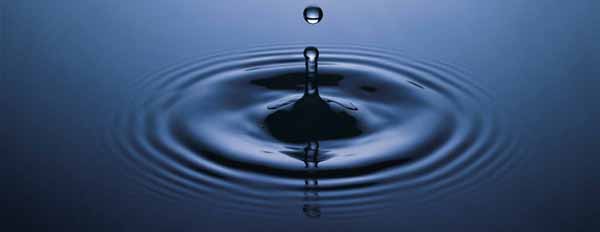
All of us want a better lather right? In our search for a better lather, we have found RO water to be far superior to tap water. Now, if you live in someplace like Hawaii, where the water is pristine, fresh, and is not hard… well, we hate you. But for the rest of us, hard water is a cold hard reality. Hard water makes for a less than stellar lather, does not produce as much lather, is not as slick as it can be, and is hard on your brush(es). The solution is filtered water. Removing all or most of the calcium and fluoride will make for a much better lather, and keep your brush cleaner, longer.
Why Hard Water is Bad
First, we must examine what hard water is. Hard water is water that has a large amount of dissolved minerals, such as calcium and magnesium. The more minerals in your water, the harder it is. In fact, the term hard water originated from our forebears having difficulty lathering with said water. It was, and still is, “hard water” to lather with. Getting even more technical, it is the Group 11 alkali earth minerals (particularly calcium or magnesium) which make the water hard. Learn more about them here. These minerals are either missing or in significantly reduced concentrations in soft water. I don’t know why its called soft water other than its the opposite of hard.
So why do the minerals interfere with the lathering process? Well, believe it or not, hard water makes lathering any soaps harder. Including your daily hand, dish, and body cleansing soaps. Soap is made from sodium byproducts, the result of combining animal or vegetable oils and fats with lye in a process called saponification, that easily bubble into a full lather when combined with pure water. When combined with soft water, the soap serves as a surfactant. The Calcium and Magnesium molecules interferes with this process. Instead of producing rich, bubbly lather, hard water makes a white precipitate (soap scum) instead. “This effect arises because the 2+ ions destroy the surfactant properties of the soap by forming a solid precipitate (the soap scum).” Wikipedia.
Thus, hardness is scientifically defined as the soap consuming properties of a water sample.
While there are many methods used to combat hard water, from boiling the water to using baking soda. The best method by far is to use enhanced water. Enhanced through actual filtration or through a soft water system.
Filtered Water
I really like RO water, but understandably, most people do not have RO systems in their houses, and they are expensive. Bottled water would be ridiculous. A water filter from Brita or Pur is not particularly expensive and will produce good results. Either the over the faucet or pitcher model will work well. And you get to drink better tasting water!
If you want the same results as RO water without the expense, go to your store and pick up a gallon of distilled water. It should only cost a dollar or two. Otherwise, buy a half gallon. Distilled water is very inexpensive and will produce the same effects as RO water. If you live in a hard water area, you really need to try soft water. It makes lathering so much easier and enjoyable.
